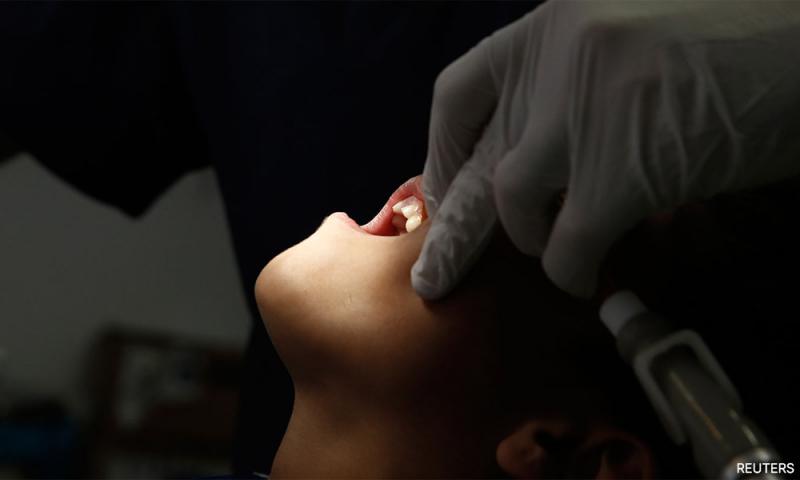LETTER | Oral health: Can we afford to ignore it?
LETTER | Ask someone about their health and they are likely to think about chronic conditions like heart disease or diabetes. Oral health is rarely considered.
However, a lifetime of being complacent about oral health can lead to lasting consequences.
The two main oral health diseases are caries (cavities or tooth decay) and periodontal (gum) disease. These problems affect people from all walks of life and data from nationwide surveys show that these problems begin in early childhood, as indicated in the National Oral Health Survey of Preschool Children (NOHPS), which found that 71.3 percent of five-year-olds have cavities.
Among adults, the situation appears more dire. According to the National Oral Health Survey of Adults in 2010, about 94.0 percent of the Malaysian adult population suffered from mild to severe periodontal disease while 88.9 percent had dental caries. The survey also found that the severe gum disease category had increased from six percent in 1990 to 17.8 percent in 2010, owing to many different factors.
These numbers are significant because oral health and general health are closely linked, with common risk factors. In this way, the presence of caries and periodontal disease is also useful indicators of general health.
Furthermore, there are other consequences of poor oral care – discomfort and pain that can affect sleep, productivity, and quality of life, difficulty in eating that can lead to malnutrition, poor general health, and more.
Practising good habits
What this tells us is that we need to look at oral health the same way we look at general health, by practising good habits daily and leading healthy lifestyles. The parallels are clear: Lifestyle habits like frequent snacking and high consumption of sweet and sticky foods contribute to the build-up of plaque and cavities while also leading to chronic health conditions like diabetes and obesity.
Similarly, just as these chronic health conditions can be prevented through a healthy diet and exercise, oral health problems such as caries and periodontal disease can be prevented through proper daily care and maintenance or halting the disease progression while still in its early stages.
Many people seem to view oral health as insignificant or its consequences as inevitable. For example, many feel losing one’s teeth and wearing dentures is a natural part of ageing but this can actually be prevented. For this to happen, we must establish strong foundations of oral hygiene habits in early childhood, with the support of parents and teachers, who also need to be educated about age-appropriate brushing and general oral care.
As the lifelong burden of poor oral health is heavy, owing to pain, lack of productivity, and compromised general health – not to mention the escalation of the cost and complexity of dental treatment – this is something we cannot afford to ignore, as individuals and as a nation.
There needs to be more awareness and education, and the commitment from individuals to view oral health with the same discipline as other aspects of their overall health, with daily care and regular checkups to detect potential problems early.
Therefore, in conjunction with World Oral Health Day (March 20) with its theme 'Proud of Your Mouth', I urge Malaysians of all ages to take the first step by making a greater commitment to oral health, beginning with twice daily brushing with a fluoridated toothpaste and flossing.
Routine dental check-up
For those who smoke, consider quitting as smoking increases the risk for gum disease, oral health problems, and oral cancer, as well as other health problems.
Secondly, let us also set a good example for young children by teaching them good oral care routines from a young age. For example, when their baby teeth first erupt, make tooth brushing a fun activity for them, and bring the child for a routine dental check-up.
For those who may lack the manual dexterity to manage toothbrushing and flossing independently due to age, health, or disability, we need to provide the necessary care and support to help them manage their oral hygiene.
Therefore, if you have an older adult or person with special needs at home, speak with a healthcare professional about special toothbrushes or mouthwashes and a more detailed plan to improve oral hygiene.
Last but not least, don’t forget to work together with your dentist on your journey of oral wellness. Visit your dentist regularly, at least once a year, and not just when there’s pain or discovery of a lesion in the oral cavity. Preventive care can go a long way in obtaining oral wellness and good general health.
For those on a budget, affordable community-based dental care is more widely available than many think, with 1,670 dental facilities including mobile dental clinics spread across the nation, with a full listing available here.
Let’s be proud of our mouth and work together to make oral health a priority in our lives, putting in a little effort each day for rewarding outcomes.
PROFESSOR DR SEOW LIANG LIN is dean, School of Dentistry, International Medical University (IMU).
The views expressed here are those of the author/contributor and do not necessarily represent the views of Malaysiakini.
RM12.50 / month
- Unlimited access to award-winning journalism
- Comment and share your opinions on all our articles
- Gift interesting stories to your friends
- Tax deductable
